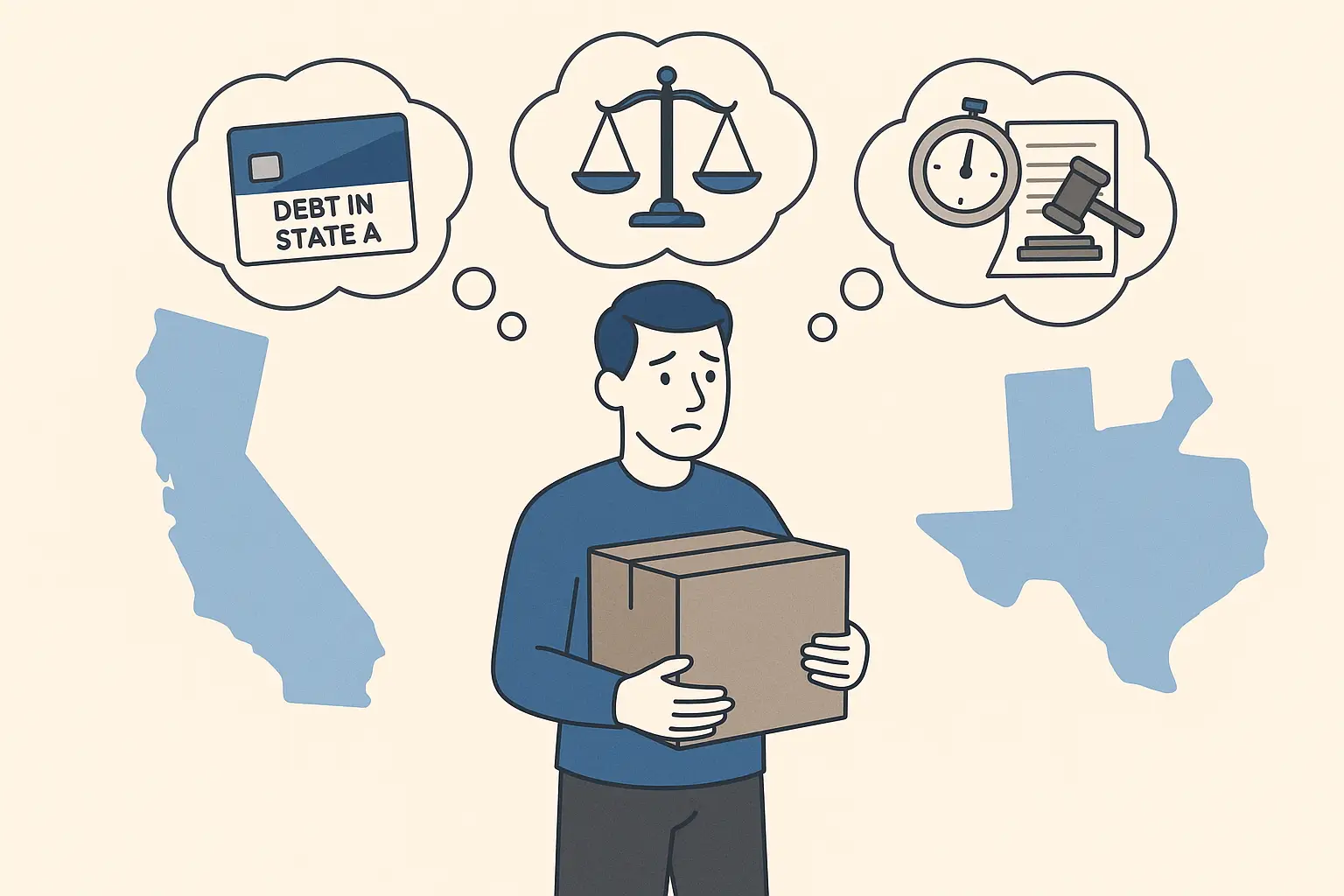Moving and Debt in the U.S.: Which State’s Laws Protect You?
When dealing with debt in the United States, your rights and protections depend heavily on the state where you live. But what if you incur a debt in one state and then move to another before facing collection or legal action? Here’s a straightforward guide to which state’s laws apply, how statutes of limitations work, and what happens if a creditor gets a judgment against you after you move.
The General Rule: Your Current State of Residence Prevails
In most cases, the law of your current residence determines your rights and protections against debt collection. This includes:
- Exemption amounts and types of property protected from seizure
- Wage garnishment limits
- Debt collector licensing requirements
- Collection procedures
Example:
If you incurred a credit card debt in Florida but later moved to California, a creditor may try to collect or sue you. At the same time, if you live in California, California’s laws will generally govern the process, including what assets are protected and how much of your wages can be garnished.
Key Exceptions: Statutes of Limitations and “Borrowing Statutes”
Statute of Limitations (Time Limits on Collection Lawsuits)
The statute of limitations sets the time frame for a creditor to sue you for a debt.
- Generally, the law of your current state applies.
- However, some states have “borrowing statutes”: If the statute of limitations is shorter in the state where the debt was incurred, your new state may apply the shorter period to prevent creditors from taking advantage of a longer time limit.
Practical effect:
If your debt is already time-barred (expired) in the state where you incurred it, moving to a state with a longer statute of limitations usually does not revive it for collection lawsuits.
Choice of Law Clauses in Contracts
Some credit agreements specify which state’s law applies for specific contract terms (like interest rates or fees). However, for consumer protections, such as exemptions and collection procedures, your state of residence at the time of collection or lawsuit almost always prevails.
Judgments and “Sister-State Judgments”
If a creditor obtains a judgment against you in one state, they can “domesticate” or transfer that judgment to another state where you now live, using a “sister-state judgment.”
- The judgment is enforced under the laws and procedures of your new state.
- This means your current state’s exemptions and protections apply, even if the original judgment was issued elsewhere.
Why This Matters
- When you move, your rights and protections can change dramatically: Some states offer much stronger exemptions and limits on wage garnishment than others.
- Statutes of limitations are key: Moving does not reset the clock. If your debt is already uncollectible in the state where you incurred it, it’s generally uncollectible everywhere.
- For judgments: Creditors can follow you across state lines, but must follow your new state’s rules.
Practical Tips
- Keep records of your addresses, which can be crucial in proving which law applies.
- Consult a consumer law attorney in your new state if you’re facing collection or a lawsuit.
- Check the statute of limitations; your debt is old, and it may be legally uncollectible.
- Notify creditors of your new address to avoid being sued in a state where you no longer live.


